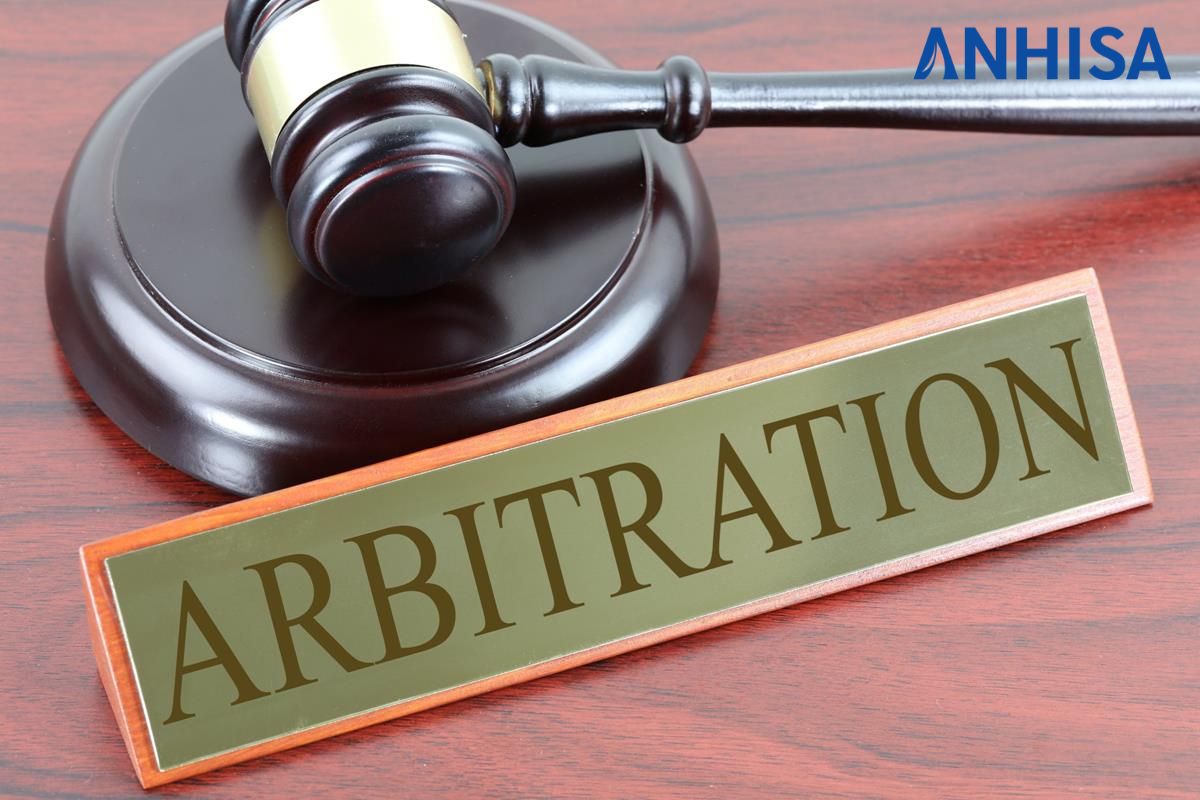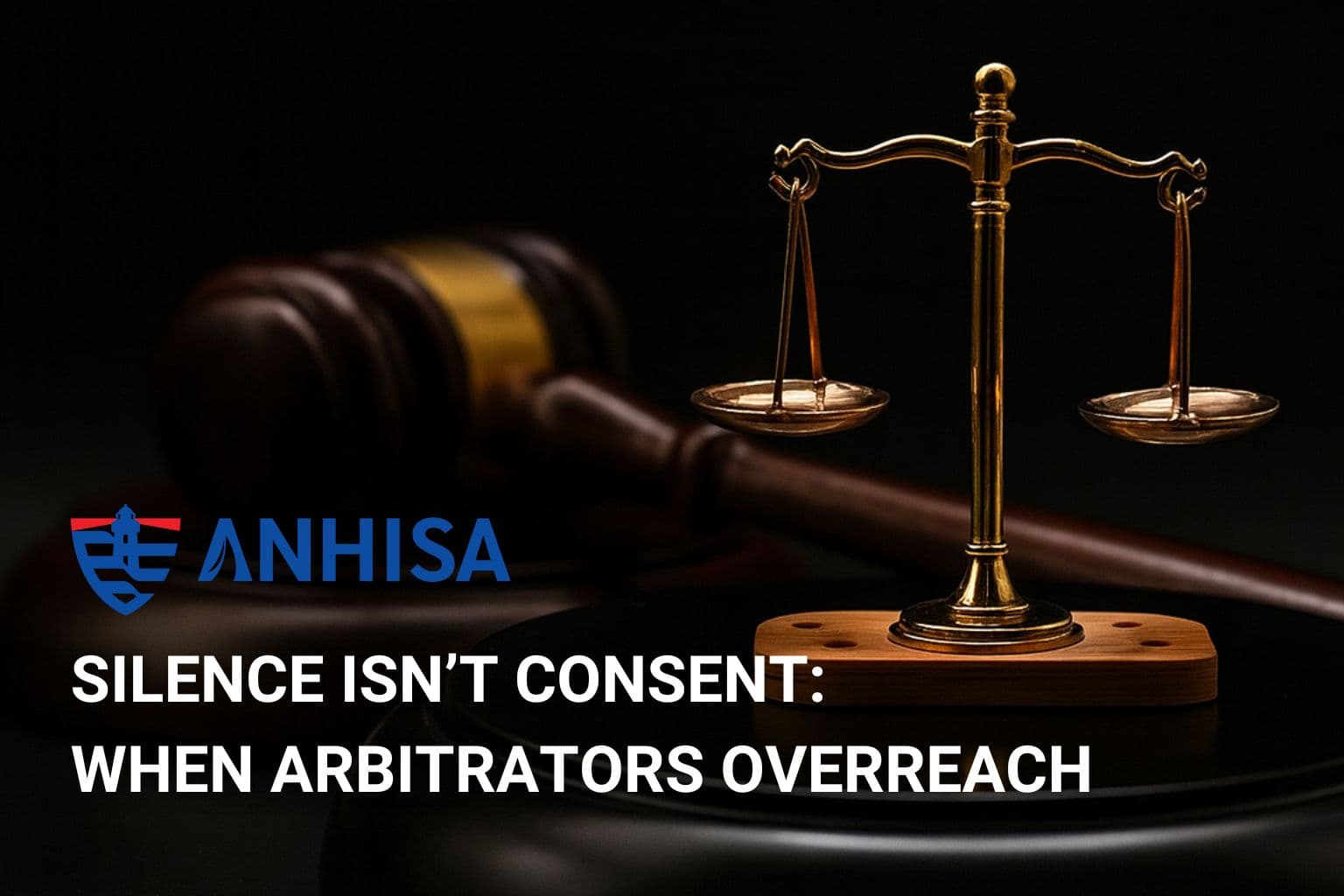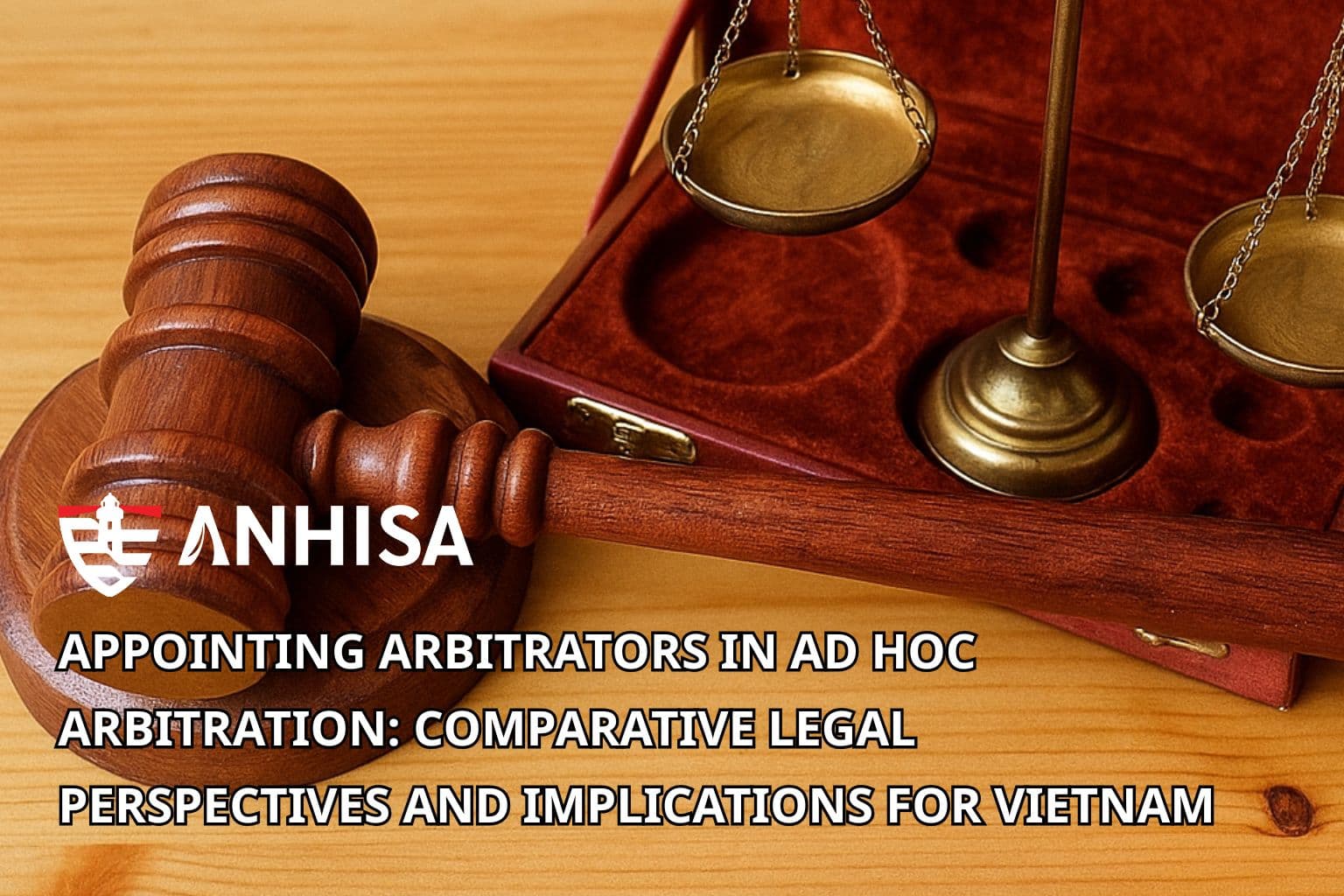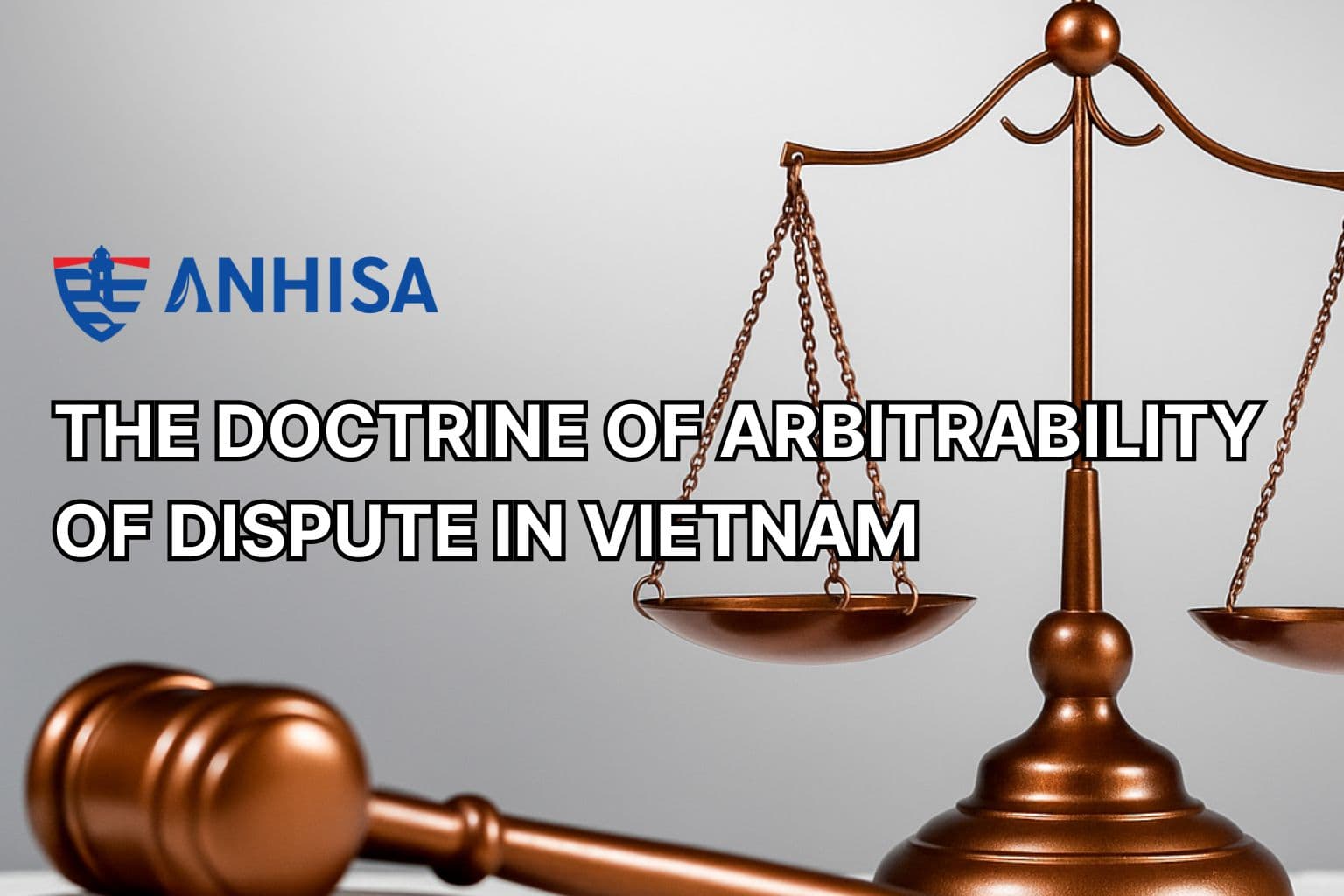[A SERIES OF ARBITRATION NOTES] Episode 3 | Forum dispute arising from the discrepancy between Jurisdiction Clause of Charterparty and that of Bill of Lading
December 27, 2024
Foreword
At ANHISA, we pride ourselves on delivering strategic and client-centered solutions in navigating the complexities of international arbitration. Our deep understanding of cross-border disputes, coupled with innovative application of arbitration principles, ensures that our clients’ interests are safeguarded at every stage.
Maritime disputes often bring unique challenges, particularly when jurisdictional conflicts arise between charterparty and bill of lading (B/L). These disputes require not only legal precision but also a strategic approach to preserve the efficacy of arbitration as a chosen forum of dispute resolution.
ANHISA successfully defended the argument that arbitration had jurisdiction in a recent case involving Vietnam ad hoc arbitration, despite a jurisdictional challenge arising from conflicting clauses in the charterparty and the B/L. By presenting robust legal arguments and leveraging an in-depth understanding of the UNCITRAL Model Law (2006), we demonstrated the primacy of the arbitration clause in the charterparty, ensuring that arbitration was upheld as the appropriate forum for resolving the dispute.
This case highlights ANHISA’s dedication to affirming arbitration as a powerful mechanism for resolving disputes efficiently, fairly, and in line with the true intentions of the parties. Through meticulous preparation and the application of international arbitration principles, we continue to deliver practical and innovative solutions tailored to our clients’ needs.
The agreement and initial dispute
Our Client, as a Charterer, entered into a charterparty with the Shipowner. The agreement contained a binding ad hoc arbitration clause, designating Viet Nam as the seat of arbitration, and expressly applied the UNCITRAL Model Law (2006 version).
Later, the Shipowner, acting as the actual carrier, issued a bill of lading (B/L) for each transportation of cargo. Unlike the charterparty, the B/L included a forum selection clause stipulating that disputes should be resolved in the courts of Vietnam.
When the cargo sustained damage during transit, our Client initiated arbitration proceedings in Vietnam, submitting a Statement of Claim (SOC) in accordance with the charterparty. The Shipowner then challenged the Tribunal’s jurisdiction, arguing that the Vietnamese courts should have been the correct forum pursuant to the B/L.
The shipowner’s argument
The Shipowner sought to challenge the jurisdiction of the arbitral Tribunal in order to prolong the dispute resolution process. To accomplish this objective, the Shipowner presented the following arguments:
Timing of Issuance
The Shipowner contended that the B/L, being issued after the charterparty, represented the most recent agreement between the parties. As the B/L serves as evidence of the contract of carriage, it was argued that its terms, including the jurisdiction clause designating a Vietnamese court, should take precedence over the arbitration clause in the charterparty.
The Shipowner emphasized that the issuance of the B/L effectively updated and replaced the earlier terms agreed upon in the charterparty, making the B/L the primary governing document for resolving disputes related to the cargo.
Specificity of the Bill of Lading
Another pillar of the Shipowner’s argument was the tailored nature of the B/L. It argued that, unlike the charterparty, which typically serves as a general agreement for the hire of the vessel, the B/L is customized for the specific voyage and directly governs the carriage of the particular cargo in question.
This specificity, the Shipowner claimed, rendered the B/L more relevant to disputes concerning the condition and delivery of the cargo. The jurisdiction clause in the B/L, therefore, should be deemed the appropriate and binding clause, given its direct relationship to the issue at hand.

The Owner’s arguments
Our lawyers presented arguments that the arbitration clause in the charterparty should prevail over the jurisdiction clause in the B/L, based on the following principles:
The Charterparty as a Bespoke Agreement
The charterparty represented a meticulously crafted agreement, tailor-made to meet the specific needs and expectations of the parties involved. It was the result of thorough negotiations and mutual agreement, ensuring that it captured the true intentions and precise terms desired by both parties. Each clause was carefully deliberated, reflecting the unique aspects of their commercial relationship.
In contrast, the B/L was not a similarly negotiated document but rather a standardized form issued solely by the Shipowner. This generic document was designed for routine application across all shipments, irrespective of the particularities of any individual transaction.
As a result, the charterparty stood out as the superior and governing contract, representing the genuine consensus between the parties, while the B/L merely played a functional and less significant role in the broader contractual framework.
The limited function of the Bill of Lading
Our lawyers further argued that the charterparty explicitly established itself as the prevailing document, giving it precedence over other related instruments. The language within the charterparty underscored its comprehensive nature, outlining the terms and conditions that governed the entire transaction.
In contrast, the B/L was described as having a limited and auxiliary role, primarily serving as a receipt for the cargo. Its primary purpose was to confirm the shipment’s details, including the nature and quantity of the goods being transported. The charterparty’s arbitration clause, which was the result of careful negotiation, was intended to be the exclusive mechanism for resolving disputes. As such, any jurisdiction clause embedded within the B/L, issued unilaterally and without negotiation, could not override the arbitration clause agreed upon in the charterparty. This distinction reaffirmed the charterparty’s superior role in defining the rights and obligations of the parties.
The Partial Award on Jurisdiction
After considering the parties’ submissions, the Arbitral Tribunal issued a Partial Award on Jurisdiction, ruling that the Arbitral Tribunal had jurisdiction to adjudicate the dispute. The Tribunal made the following findings:
- The arbitration clause in the charterparty was valid, binding, and enforceable, pursuant to the provisions of the UNCITRAL Model Law.
- The jurisdiction clause in the B/L was secondary in nature and could not override the bespoke arbitration clause in the charterparty.
- The parties’ contractual intentions, as evidenced in the charterparty, clearly favored arbitration as the mechanism for resolving disputes.
The Shipowner’s Challenge to the Partial Award
The Shipowner, dissatisfied with the Tribunal’s ruling, filed a challenge to the Partial Award of Jurisdiction before the Vietnamese courts under Article 16(3) of the UNCITRAL Model Law[1] and Article 44.1 of the Vietnamese Law on Commercial Arbitration[2]. Additionally, the Shipowner sought to stay the arbitration proceedings, pending the court’s determination on jurisdiction.
Proceedings at Arbitration Continue
In response, our lawyer invoked Article 16(3) of the UNCITRAL Model Law and Article 44.5 of the Vietnamese Law on Commercial Arbitration[3], asserting that arbitration proceedings could continue despite the jurisdictional challenge. The Tribunal then decided to proceed with the hearings while awaiting the Viet Nam court’s ruling.

The Final Ruling of the Vietnamese Court
The Vietnamese court ultimately upheld the Partial Award on Jurisdiction, affirming the Tribunal’s findings. The court emphasized the following points:
- The arbitration clause in the charterparty reflected the parties’ true agreement and took precedence over the standard terms in the B/L.
- The designation of arbitration as the dispute resolution mechanism in the charterparty was valid and enforceable, and arbitration was the correct forum for resolving the dispute.
The arbitration proceedings continued without further interruption, and the dispute was resolved by the arbitral tribunal.
Anhisa’s Commitment to Client-Centric Solutions
ANHISA remains unwavering in its commitment to delivering innovative and tailored strategies that meet the unique challenges of cross-border disputes. This case underscores our ability to prioritize the true intentions of the parties and enforce arbitration clauses in bespoke agreements such as charterparties, even when conflicting provisions in related documents arise. Our approach illustrates the effectiveness of leveraging international legal frameworks, such as the UNCITRAL Model Law, and procedural safeguards to ensure efficient and fair dispute resolution.
By staying at the forefront of legal developments and employing robust advocacy, ANHISA continues to safeguard our clients’ interests and champion arbitration as a powerful, efficient, and reliable mechanism for resolving complex disputes.
[1]Article 16(3) of the UNCITRAL Model Law
(3) The arbitral tribunal may rule on a plea referred to in paragraph (2) of this article either as a preliminary question or in an award on the merits. If the arbitral tribunal rules as a preliminary question that it has jurisdiction, any party may request, within thirty days after having received notice of that ruling, the court specified in article 6 to decide the matter, which decision shall be subject to no appeal; while such a request is pending, the arbitral tribunal may continue the arbitral proceedings and make an award.
[2]Article 44.1 of the Vietnamese Law on Commercial Arbitration
Complaints and Resolution of Complaints Regarding the Arbitral Tribunal’s Award on the Absence, Invalidity, Infeasibility of Arbitration Agreements, and the Jurisdiction of the Arbitral Tribunal
In the event of disagreement with the award of the Arbitral Tribunal as prescribed in Article 43 of this Law, within 05 working days from the date of receipt of the decision of the Arbitral Tribunal, the parties have the right to submit a request to the competent court for review of the decision of the Arbitral Tribunal. The complaining party must simultaneously notify the Arbitral Tribunal of the complaint.
[3]Article 44.5 of the Vietnamese Law on Commercial Arbitration
Complaints and Resolution of Complaints Regarding the Arbitral Tribunal’s Award on the Absence, Invalidity, Infeasibility of Arbitration Agreements, and the Jurisdiction of the Arbitral Tribunal
While the court is addressing the complaint, the Arbitral Tribunal may continue to resolve the dispute.
ANHISA LLC AND OUR EXPERTISE
ANHISA LLC is a boutique law firm specializing in Dispute Resolution, Shipping and Aviation. Being the leading lawyers in various fields of law, our qualified, experienced, and supportive team of lawyers know how to best proceed with a case against or in relation to Vietnamese parties and are well equipped to provide clients with cost-effective and innovative solutions to their problems. Regarding dispute resolution, we have represented Vietnamese and foreign clients in the resolution of disputes involving maritime, construction, commercial and civil matters. Our lawyers are well-equipped to offer services on a wide range of disputes and conflicts, whether cross-border or purely domestic, to appear before any Judges or Arbitral Tribunals. The firm is prepared to assist clients in designing the appropriate dispute resolution procedure to help resolve conflicts as efficiently and cost effectively as possible, which may involve combining elements of mediation and other methods such as arbitration.
AUTHORS
DANG VIET ANH
Managing Partner
Mobile: (+84) 983 467070
Email: [email protected]
TRUONG CONG HONG
Senior Associate
Mobile: (+84) 909 814090
Email: [email protected]
NGUYEN THI THAO VAN
Associate
Mobile: (+84) 383 552680
Email: [email protected]
This article aims to furnish our clients and contacts with general information on the relevant topic for reference purposes only, without creating any duty of care on the part of ANHISA. The information presented herein is not intended to serve, nor should it be considered, as a substitute for legal or other professional advice.
Related posts

SILENCE ISN’T CONSENT: WHEN ARBITRATORS OVERREACH
November 27, 2025

APPOINTING ARBITRATORS IN AD HOC ARBITRATION: COMPARATIVE LEGAL PERSPECTIVES AND IMPLICATIONS FOR VIETNAM
October 08, 2025

PARTIES TO AN ARBITRATION AGREEMENT
October 01, 2025

THE DOCTRINE OF ARBITRABILITY OF DISPUTE IN VIETNAM
September 24, 2025
- TEL:
- Hanoi Office: +84 24 320 47609
- Saigon Office: +84 28 5416 5873
- HOTLINE:
- +84 (0) 939 117 398
- +84 (0) 983 488 380

